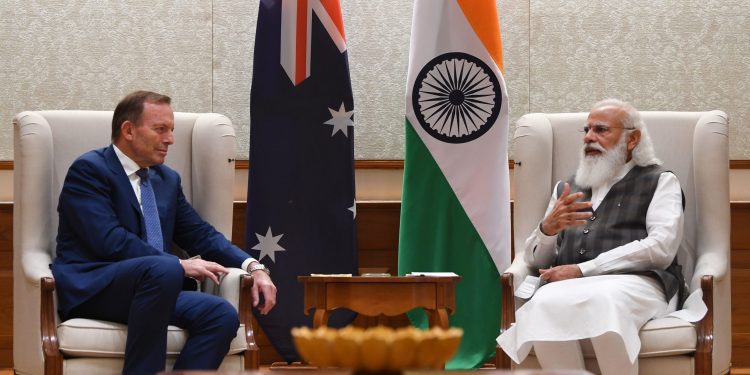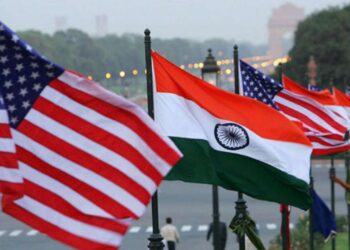Former Australian Prime Minister Tony Abbott has said that a free trade agreement with India would signal the “democratic world’s tilt away from China”.
Tony Abbot, Australian special envoy, visited New Delhi last week laying bare Australia’s eagerness to strike a free trade deal with India.
In an op-ed published in The Australian newspaper on Monday, Abbott wrote that the “answer to almost every question about China is India.”
“Because trade deals are about politics as much as economics, a swift deal between India and Australia would be an important sign of the democratic world’s tilt away from China, as well as boosting the long-term prosperity of both our countries,” Abbott wrote.
China and Australia finalised a bilateral free trade deal, which took effect in 2015, under Abbot’s Prime Ministership. He also hosted a state visit by Chinese President Xi Jinping in 2014. However, relations with China have turned sour since Abbot time as PM, over issues including Australia’s ban on Chinese telecom company Huawei from major communications infrastructure projects and Australia’s call for an independent investigation into the origins of the COVID-19 pandemic.
“The basic problem is that China’s daunting power is a consequence of the free world’s decision to invite a communist dictatorship into global trading networks,” Abbott said.
“China has exploited the West’s goodwill and wishful thinking to steal our technology and undercut our industries; and, in the process, become a much more powerful competitor than the old Soviet Union ever was, because it’s now a first-rate economy that’s rapidly developing a military to match; and spoiling for a fight over Taiwan, a pluralist democracy of 25 million that’s living proof there’s no totalitarian gene in the Chinese DNA,” Abbott added.
Australia and India started negotiations on a Comprehensive Economic Cooperation Agreement in 2011 but talks have stalled since 2015, largely due to India’s concern over free trade in Australia’s agricultural exports.
Australia’s ongoing interest in India is understandable given its trade tensions with China. However, sceptics caution that Abbot’s take on the impact of a potential deal as a silver bullet for displacing China may be exaggerated and that India’s chance of replacing China’s role in the global industrial chain remains remote.
India’s willingness to open its domestic market to Australia is highly questionable, they warn, since India and Australia do not share a complementary trade structure, given India’s long history of pursuing highly protectionist economic policies, sealing off its domestic industries and companies from foreign competitive pressures.
As an example, Australia is a major exporter of agricultural products, while India is also known for its protection of its own domestic agricultural industry because of fears that the inflows of agricultural products from Australia and New Zealand would be devastating for its farm sector, which employs about 60 percent of India’s working population.
Australia’s exports to India were $24.4 billion in 2020, while two-way goods and service trade between Australia and China reached about $110 billion during the same period, achieving a record trade surplus of $55.47 billion. Raw numbers seem heavily stacked in China’s favour.











